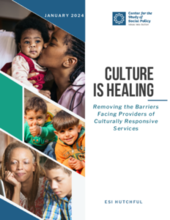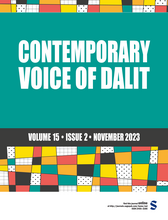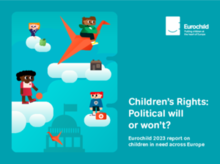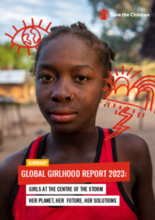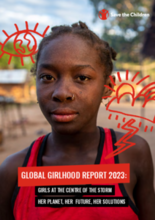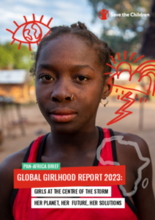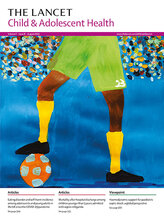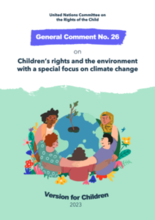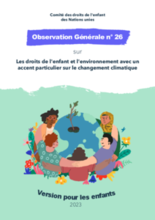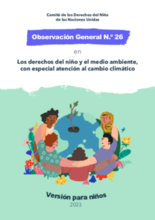Displaying 11 - 20 of 505
Ensuring child and family well-being requires a radically different, anti-racist response of supports that center the voices of diverse children and families of color, are dignified and strengths-based, and that are offered in spaces they trust. As this brief highlights, community-based organizations across the U.S. are striving to answer that call despite numerous barriers. This brief lifts up the voices of those community providers, with the goal of highlighting and addressing the barriers that stand in the way of all families having the support they need.
The article grapples with the tacit interplay of poverty, caste, and gender and its effects on the education of children in a village. It explores how pandemic-induced school closure impacted the life chances of marginalised children during and after the pandemic in the ‘deprived geography’ of rural Madhya Pradesh, India.
This report is based on assessments provided by 38 Eurochild members in 26 countries and provides recommendations for each country on how to address among others, child poverty and social exclusion, discrimination, health, online safety and early childhood services.
The climate crisis is already changing girls’ lives and futures. Save the Children’s analysis shows that between now and 2030, almost 60% of girls - that’s 931 million - will experience at least one extreme weather event, like flooding, drought or heatwaves.
This year’s adolescent-friendly Global Girlhood Report explores how the climate crisis impacts girls’ rights. It features new analysis by Save the Children on emergency hotspots where girls face the dual threat of child marriage and climate disasters, and stories of girls advocating for climate action in their communities.
The climate crisis is already changing girls’ lives and futures. Girls across Africa are facing growing challenges as the climate crisis increasingly impacts the continent, leading to a range of extreme weather patterns. In southern parts of Africa, girls are enduring devastating cyclones and floods. Meanwhile, the Sahel, Eastern, and Horn of Africa regions - home to the highest rates of child marriage - are grappling with severe droughts. Climate-induced migration is also on the rise in Western, Southern, and Central Africa.
In this Health Policy, the authors map the global variation in age restrictions and durations of stay in prison with a primary caregiver. They show a broad range of approaches and provisions for the placement of children in prison.
In this general comment, the Committee emphasizes the urgent need to address the adverse effects of environmental degradation, with a special focus on climate change, on the enjoyment of children’s rights, and clarifies the obligations of States to address environmental harm and climate change.
Cette Observation générale explique pourquoi il est urgent d'agir en faveur de l'environnement et du climat et ce que les gouvernements doivent faire pour protéger tous les droits des enfants. Elle précise également que les gouvernements doivent protéger les droits des enfants d'aujourd'hui et ceux des générations futures.
Los daños medioambientales son una amenaza importante para los derechos de la infancia en todo el mundo. Los niños y las niñas exigen que se tomen medidas inmediatas y que se protejan sus derechos.

